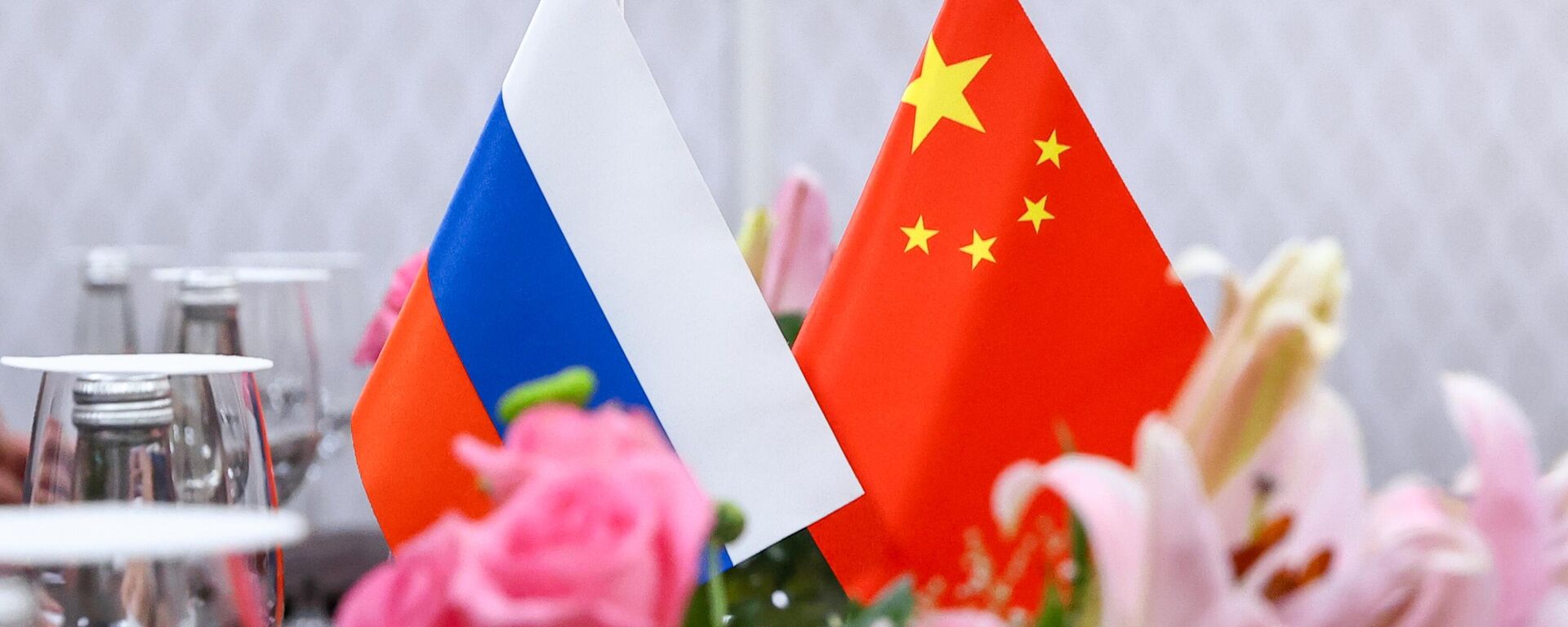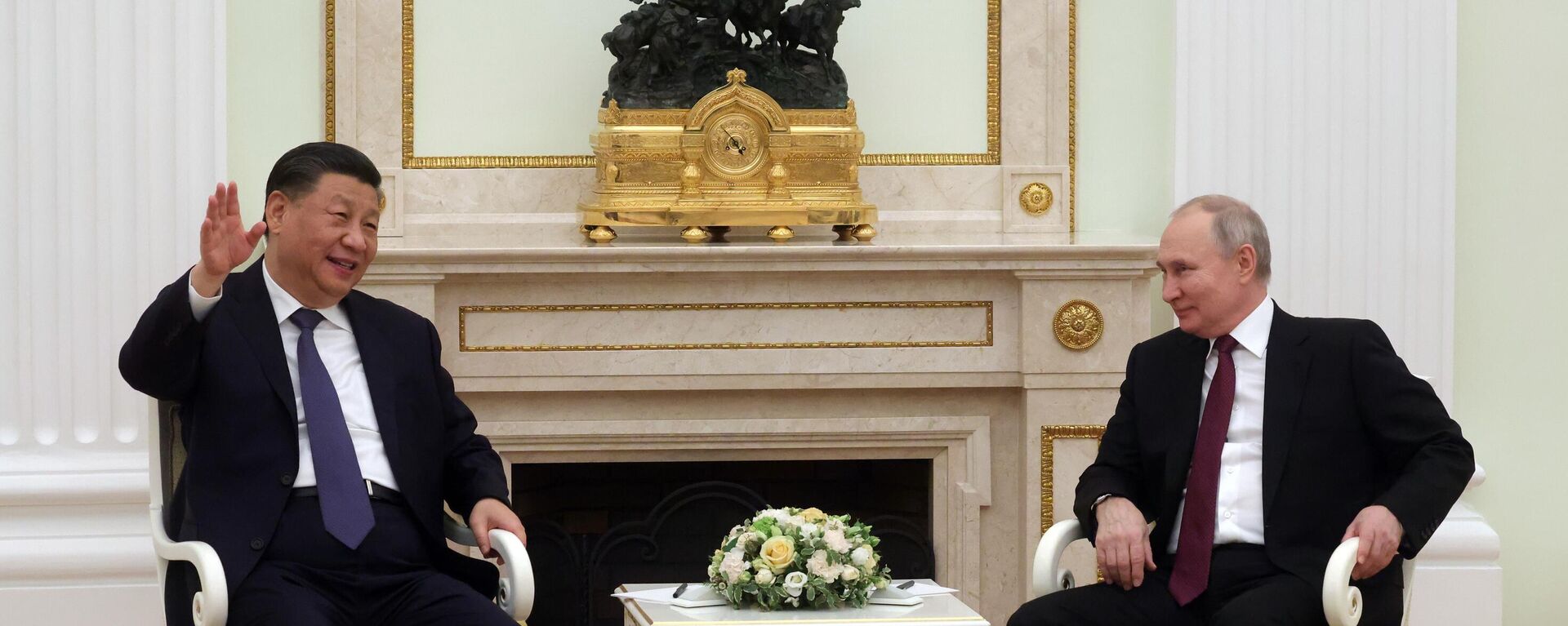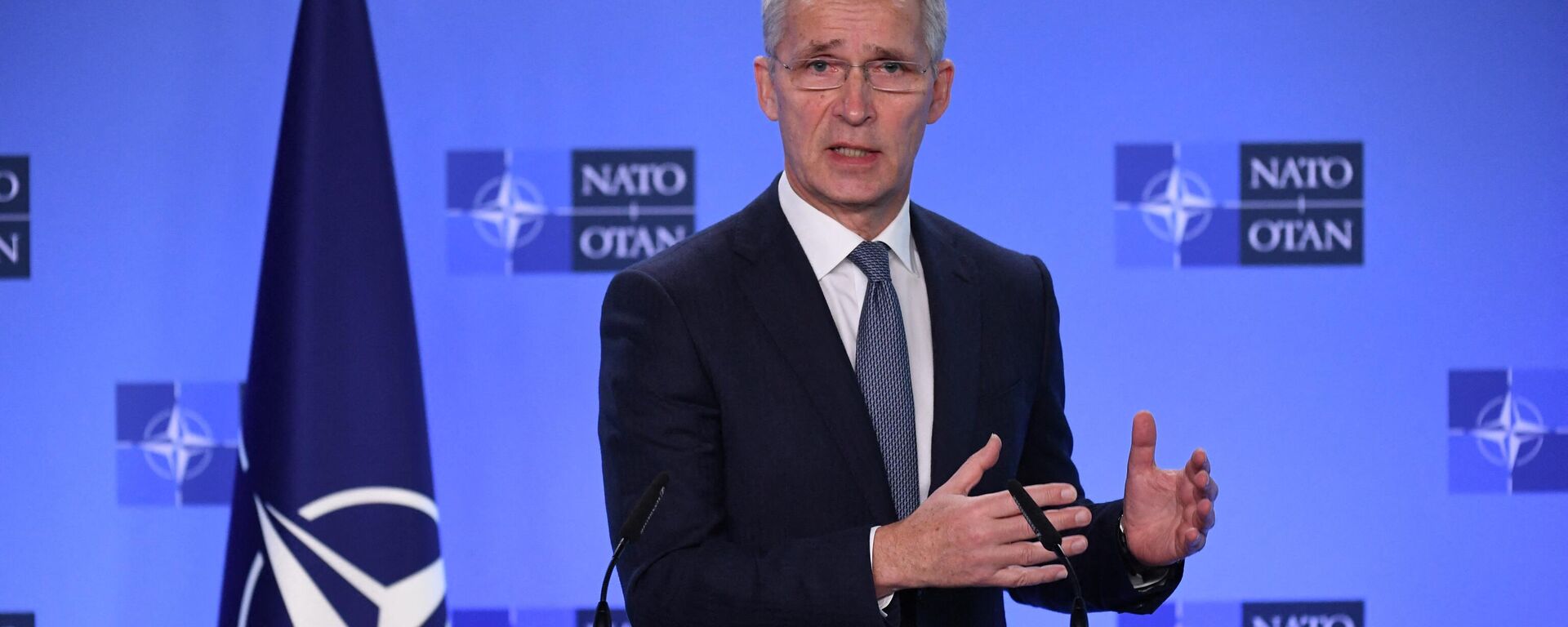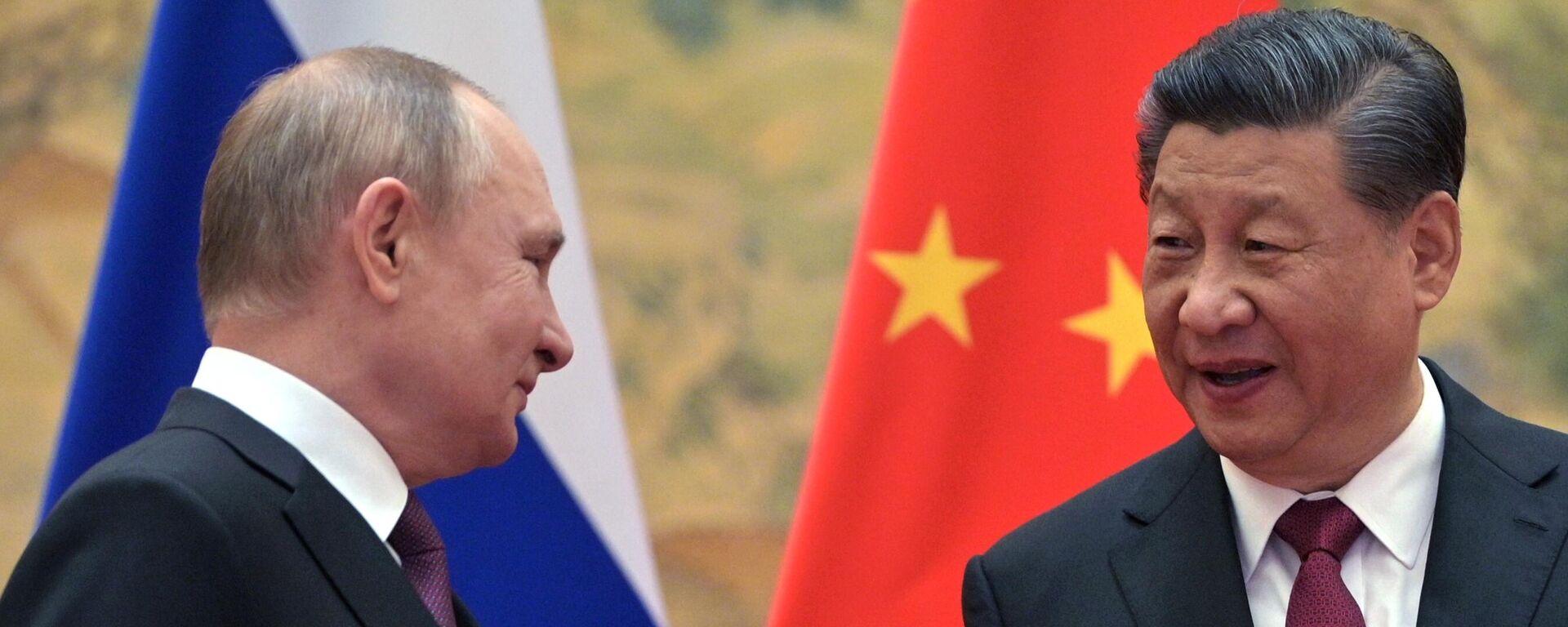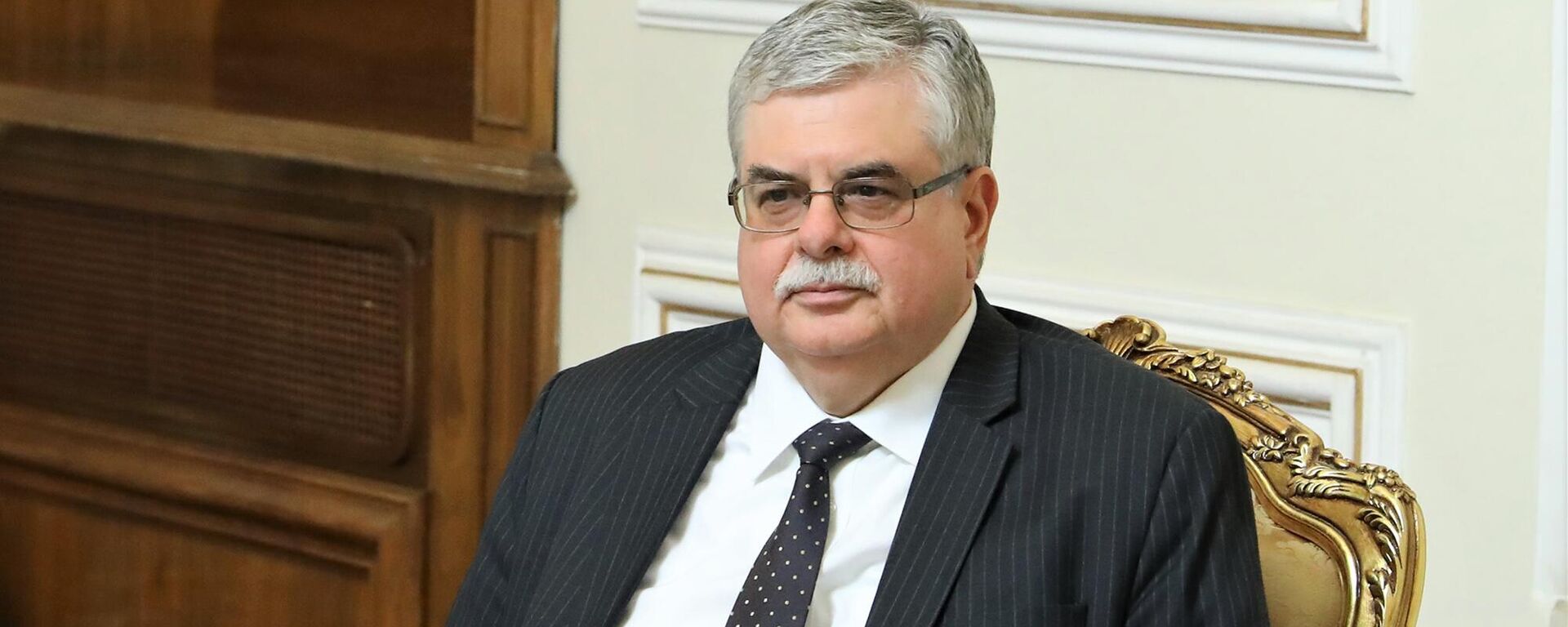Experts: Xi-Putin Talks on Expanded Economic Cooperation Part of ‘Multipolarity Building Process’
19:57 GMT 21.03.2023 (Updated: 09:54 GMT 22.03.2023)
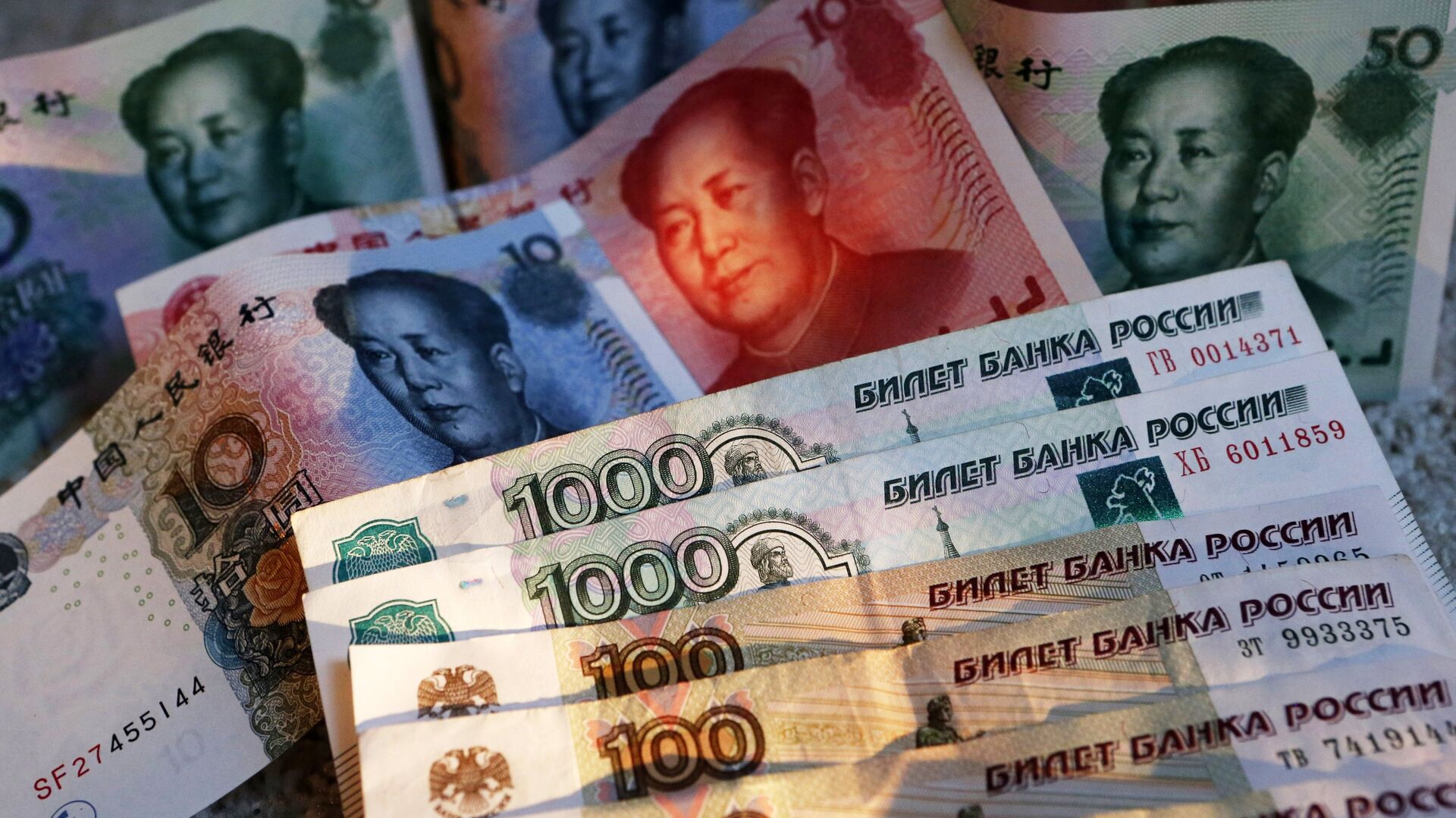
© Sputnik / Alexandr Demyanchuk
/ Subscribe
During their multi-day talks in Moscow, Russian President Vladimir Putin and Chinese President Xi Jinping have reaffirmed their commitment to cooperate in building a world no longer centered on Washington, DC, or Europe.
However, that world order won’t simply be one that replaces the United States as the global hegemon, but one that is built upon multipolar relations and a rapidly developing Global South, Fabio Massimo Parenti, a PhD in geopolitics and geoeconomics and associate professor of international political economy and geopolitics at China Foreign Affairs University in Beijing, told Sputnik on Tuesday.
Noting that Putin told Xi he supports using Chinese renminbi (RMB) or yuan as an international means of payment and reserve currency, Parenti said it was part of a larger effort to de-center the US dollar in the global economy.
“The yuan is already the fifth international currency in the world, in terms of global circulation and official reserves. The China-Russia rapprochement has gone hand in hand with global economic transformation towards multipolarity, which passes through a monetary system shift,” he explained.
“However, we should bear in mind that ‘multipolarity’ applied to the monetary system means promoting the usage of a variety of currencies, one of which is already the yuan, avoiding replacing US dollar centrality with another single currency.”
Parenti noted that Beijing “does not want to become a US successor in this sense, but it wants to promote a new form of international relations, based on equality, mutual respect and democratization of international relations. This thing is not only related to a Chinese specific worldview but it is also rooted in the pragmatic interest to avoid the problems and structural weaknesses of a unipolar world order, rejected theoretically and practically by China.”
The two world leaders have also helped launch new international payment systems that can serve as an alternative to SWIFT, which is centered in Brussels and highly subject to Western sanctions.
“Simply, after building the new platforms, exchanges cannot be blocked by western unilateral actions and international cross-border settlements can be easily done in currencies other than the dollar,” the expert explained, adding that “SWIFT was set according to technical characteristics politically oriented, to defend and exploit the dollar tyranny.”
He further added that all “Third World countries are and will be in line with this new monetary-financial course,” calling it “another sign of a kind of ‘multipolarity building process.’”
Parenti said he agreed with Putin’s statement about the importance of China and Russia combining their information technology and artificial intelligence efforts as a sort of “tech alliance,” saying such cooperation is going to be key in the future, especially as the West tries to target both nations’ tech sectors.
“China is already a world leader in many fields and Russia can benefit a lot from its partner's ability and development,” he said. “At the same time, China can benefit from Russia's new open market left by Westerners, from Russian raw materials and TLC education and expertise.”
“Combining financial resources with raw materials, talents and market size, both countries can find mutual advantages by bolstering bilateral relations at an even higher strategic level,” he asserted. “It goes without saying that all of these developments will increase both countries' independence from every sort of Western sanctions.”
“First, I think that Western sanctions are an abuse and generally detrimental for people's daily lives. Therefore, whilst the West attacks political systems and leaders, it is actually attacking the people of entire countries. Second, the Western abuse of unilateral sanctions is surely accelerating other powers' reorganization, [who are] searching for a greater level of independence and autonomy. Under this respect, I believe that both China and Russia can take advantage of this sanctions crisis/impact.”
Turning to Beijing’s proposal for peace in Ukraine - and Washington’s rejection of such a deal - Parenti said that time and again, “the US has confirmed itself as the biggest threat to humanity, the main promoter of wars, the most irresponsible country, incapable of promoting peace talks and peaceful coexistence.”
“They look only at hegemony and unipolarity, rejecting a democratization of international relations. Herein Russia-China ties find their quite recent historical roots. Only starting from this consciousness can we understand these two great countries' will to build a multipolar world system, along with many other countries of the ‘Global South’ historically enslaved by the West. All of this, in the Chinese view, means building a community with a shared future for humanity.”
Jeff J. Brown, author of The China Trilogy, editor at China Rising Radio Sinoland and co-founder and curator of the Bioweapon Truth Commission, told Sputnik that China and Russia “clearly” know that “the West’s historical ability to rape and plunder the world’s resources for the last 500 years has been enforced by an imposed reserve currency, earlier the British pound and postwar, the US dollar.”
“Among non-Western currencies, the Chinese yuan [RMB] is the most sought after to de-dollarize global trade, due to the size and scope of its [China’s] economy. With Russia’s SPSF [System for Transfer of Financial Messages'] interbank wire system, any use of the RMB is going to enhance the ruble,” he noted.
“If India and Brazil buy Russian oil and gas in yuan using the SPSF, it can use them to trade with China, whose bilateral total will easily surpass US$200 billion this year.”
Brown noted that for more than five years, the US dollar has faced “death by a thousand cuts” around the world.
“Russia and China trading in their national currencies is more than a cut, it is a gash,” he said.
He explained that when it comes to SPSF, “countries are lining up to participate, including China, India, Iran and even Germany and Switzerland. Little known is that China has its own payment system, the Cross-Border Inter-Bank Payments System (CIPS). Now that the West’s SWIFT has cut off Russia and China knows it could be next, there are plans to integrate these two anti-SWIFTs,” he predicted.
Among those that could join such a Russian-Chinese financial “coalition” are the BRICS nations, the Eurasian Economic Union, the Association of Southeast Asian Nations (ASEAN), the Community of Latin American and Caribbean States (CELAC), and oil giant Saudi Arabia, the lattermost of which he said was “probably the most disconcerting for Western empire.”
Brown said that “Westerners underestimate Russia’s historical and broad technical prowess. While there is some overlap with China (nuclear, military and aerospace), they have much to offer each other to cooperate in high-tech industries. Why not a combined ‘Manhattan Project’ for microchips, a big problem for both countries? The opportunities are endless.”
The expert also noted that China has benefited “plenty” from Western sanctions against Russia, pointing out that China has been “a win-win partner” for countries around the globe by helping them address trade imbalances in the energy, agricultural, and tech sectors.
“After what the USA and its vassals have done to both Russia and China, in terms of onerous, hegemonic sanctions in the recent years, China and Russia are benefitting tremendously with all their initiatives to enhance bilateral, Asian and African trade,” Brown said. “Over time, sanctions have never worked, especially against two big, powerful and rich countries.”
“All of these Western imperial sanctions are already a huge catalyst for China’s Belt and Road Initiative (BRI) and Russia’s Eurasian Economic Union (EAEU) to seek synergies, as well as China’s SCO and Russia’s Collective Security Treaty Organization (CSTO). ASEAN is tired of US subterfuge, BRICS is expanding and Latin America’s anti-colonial CELAC all have much to offer for continuing multipolar, mutually beneficial integration,” he added.

